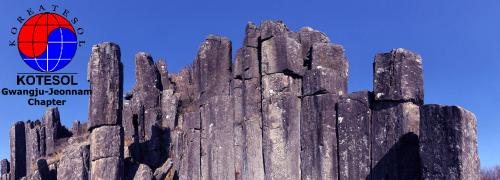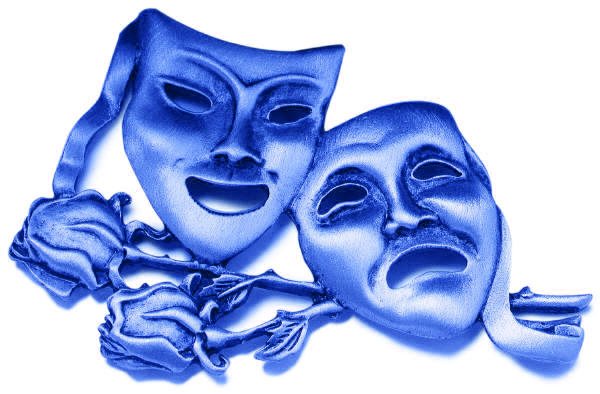
Gwangju-Jeonnam Chapter February Meeting
----- Morning Reflective Practice Session -----
No RP session scheduled for February.
----- Main Meeting Schedule -----
.
Time: Saturday, February 14, 2015, 1:45 - 5:00
Place: Chosun University Main Building (Gwangju), 4th Floor, Room 4211
1:45 pm: Sign-in and Meet-and-Greet (Admission is free. Future membership is welcomed.)
2:00 - 2:50 pm: Featured Presentation
Creativity and Theatre in Language Education
Caleb Sekeres (Chosun University, Gwangju)
2:50 - 3:10 pm: Refreshment Break
3:10 - 4:25 pm: Roundtable Discussion
Group discussion of select topics of group members
These topics may be problems teachers face, issues in ELT, professional development concerns -- anything that you would like to learn more about, or get the group's opinions on.
(Make your suggestions to shaffer.david@gmail.com)
4:30 pm: Swap-Shop: Share your Teaching Ideas, Classroom Activities, and Teaching Wisdom with the group. (Everyone is encouraged to briefly present an item, or two. Handouts welcomed.)
5:00 pm: Announcements / Drawing for Door Prizes / Closing
6:00 pm: After-meeting Dinner
_____________________________________________
Presentation Synopsis and Presenter Biographical Sketch
.
Creativity and Theatre in Language Education
By Caleb J. Sekeres
The Presentation
English education, and education in general, frequently "misses the mark" in not focusing on creative skills and fun. In the frequently dull and architecturally uninteresting classrooms of the university, the idea of "play" is not encouraged. In Korea, while music seems to have a strong foothold, theatre is not a common artistic offering at the university level. This is unfortunate, because a classroom is a natural theatre – there is an audience, or spectators, and performers at all times, namely the teacher and the students, who are both spectators and performers alternatively. It is time to change the idea that a classroom is a place for only "serious" study, and accept the idea of the classroom as theatre. It is time to focus on the resources present in every student and teacher, the body, voice, and naturally creative intellect, as a means to improve and enjoy language education.
In this workshop, participants will be introduced to theatrically-based games in order to activate basic observation skills, practice language observation and word association activities, and gain firsthand experience of how language (text and subtext) is both flexible and musical.
Beginning with a simple observation of a partner, workshop members will witness how simple change provokes intellectual curiosity while engaging a childish instinct for fun. Moving on to language-centered work, attendees will cooperate in groups to brainstorm and then manipulate language, creating simple sentences which other groups will alter. These sentences will then take on further meaning through funny, theme-based associations.
The workshop will continue into deeper physical, (non)verbal, and creative "performance" work. Students will learn to take their observation and language communication skills to another level, performing select vocabulary words in a charades-type theater game. Again, while the emphasis is on fun in the classroom, the exercise reinforces the notion of creative (and non-verbal) communication (theatre as a visual art) as a highly useful tool in the language education classroom.
Finally, to come around to the ultimate goal of practical language communication, of dialogue, the workshop will focus on text and subtext in an effort to connect language, rhythm, and meaning. Participants will again work in groups to produce short phrases or sentences from everyday life, and then observe how easily meaning can change when in the hands of another person. A simple phrase is given a context within which the text and subtext breathe and transform, and this new creation, this "new language," will be proven to have a basis in rhythm and music.
While most academics do not embrace theatre as worthy of "serious" intellectual study, as an equal in a university setting, this final theatre-based game will in fact prove that language acquisition and practice is both musical and interpretive, and thus creative.
A classroom is worthless if it does not invite the artistic imagination of its teacher and students. All the world's a stage.
The Presenter
Caleb J. Sekeres came to Korea from the United States in the summer of 2008. In America, he spent many years as a university instructor, theater educator, and stage actor in and out of New York City (Off-Broadway and regionally), where he also founded The Breakaway Theatre Company. In addition, Caleb has played the piano since he was six years old, and commercially released his second CD of original folk-style ballads, The Gift, on January 1, 2013.
Since arriving in Korea, Caleb has performed his one-man show, Bad, Bad Boy (in Chuncheon), appeared on the TV programs Heart to Heart and Surprise, recorded two music CDs, written a nonfiction novel (Out of Providence, which he hopes to publish in the coming year) in collaboration with his brother, and taught English to thousands of students of all ages. He is currently an Assistant Professor of ESL at Chosun University, and has also served as an interviewer for the Gwangju Biennale and Gwangju Universiade. Caleb is married and has one beautiful son, with another child on the way.
_____________
.



